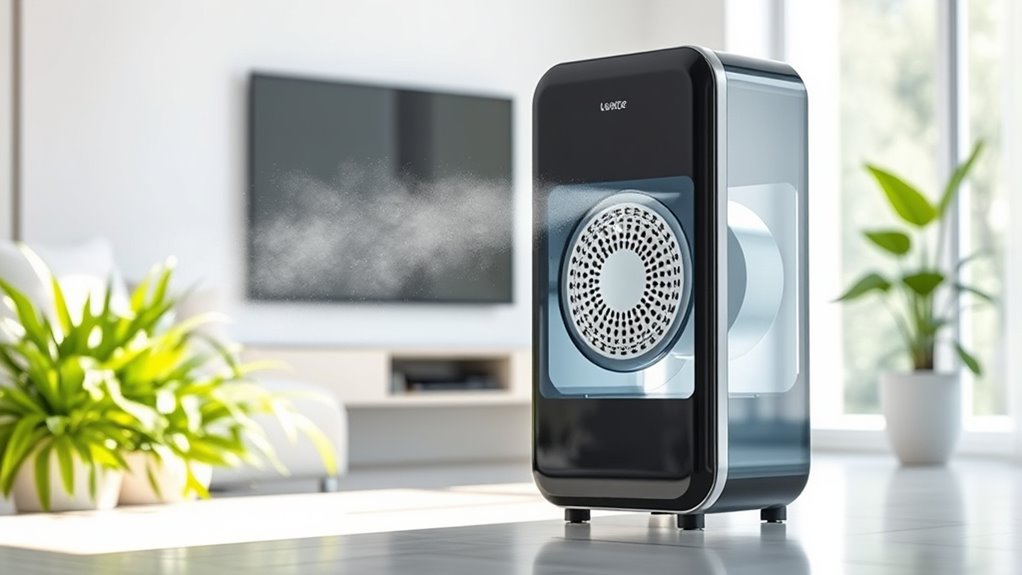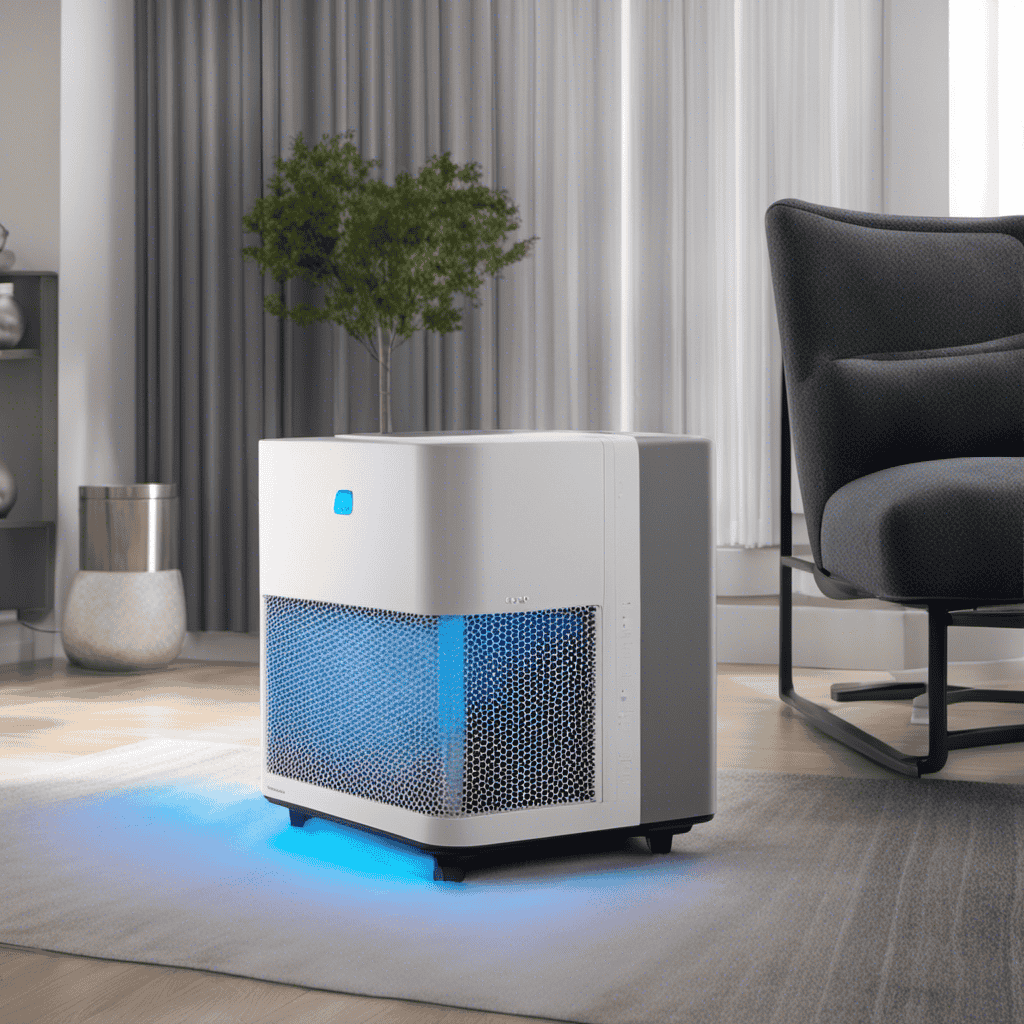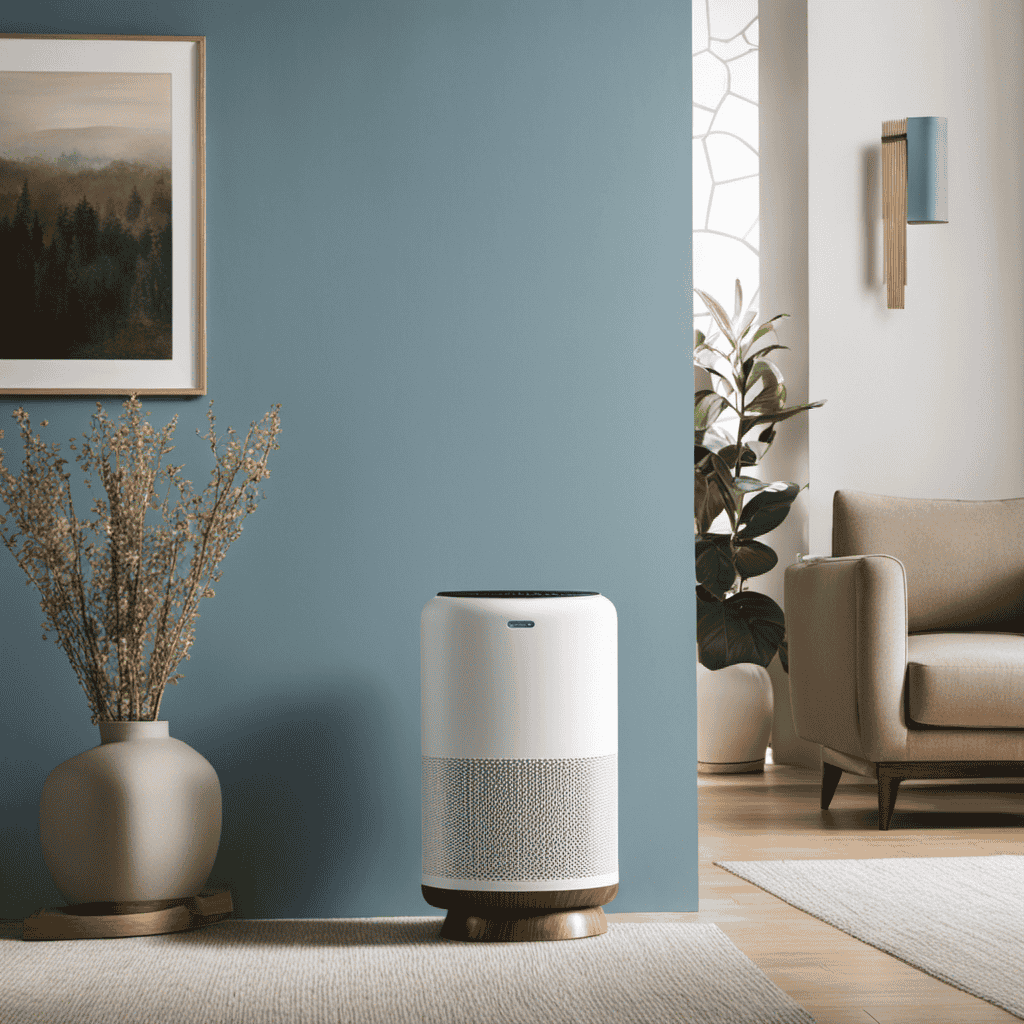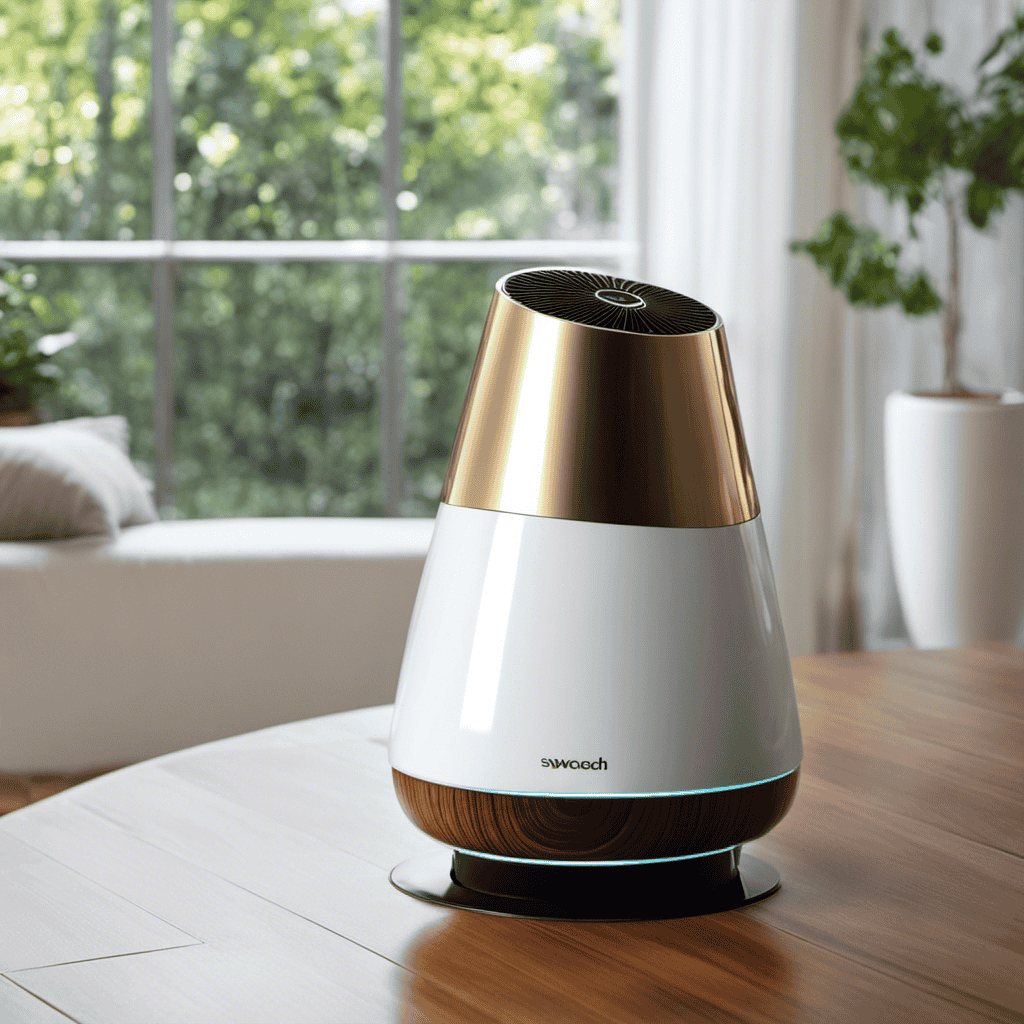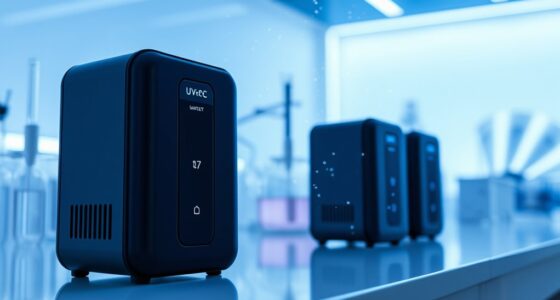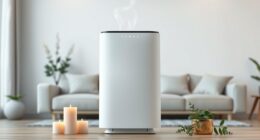Water-based air washers help remove large airborne particles like dust and pollen, creating a fresher indoor environment. However, they don’t effectively eliminate smaller pollutants such as smoke, bacteria, or odors. They mainly improve air quality but can’t replace specialized air purifiers with HEPA filters. If you want to understand how effective they truly are and their limitations, there’s more to explore that can help you make informed choices.
Key Takeaways
- Water-based purifiers primarily remove large airborne particles like dust and pollen, but do not eliminate smaller pollutants such as smoke or bacteria.
- They can improve indoor air freshness but are not substitutes for specialized HEPA air purifiers with comprehensive filtering capabilities.
- Regular cleaning and water changes are essential to prevent odors, bacterial growth, and mineral buildup that can reduce effectiveness.
- Their continuous operation may increase energy consumption and maintenance efforts, especially in hard water areas.
- Overall, air washers contribute to cleaner air but offer limited purification compared to dedicated air filtration systems.
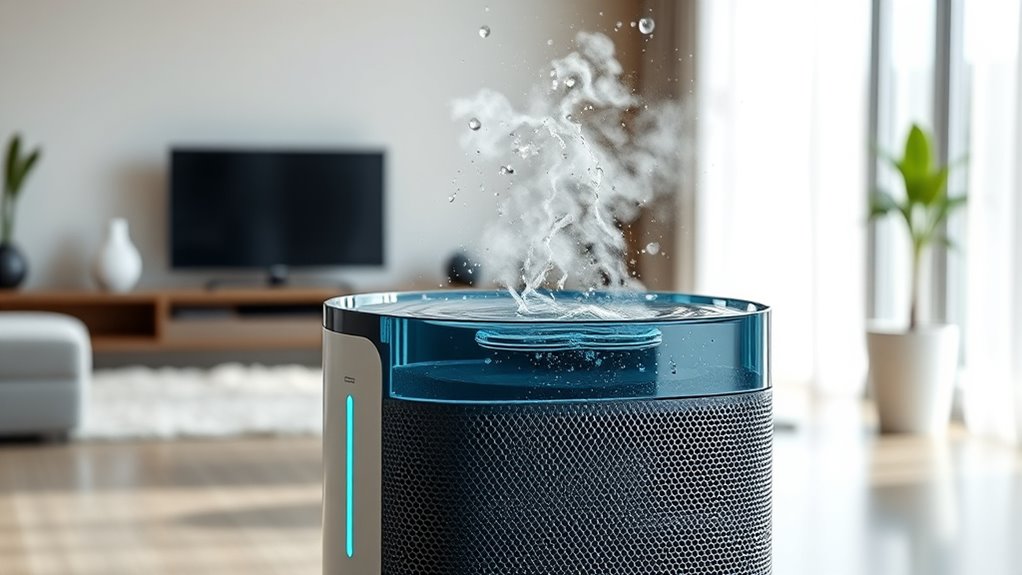
Water-based purifiers have become an essential part of ensuring clean and safe drinking water at home. These devices often come with features that promise multiple benefits, including air quality benefits. Some models are marketed as “air washers,” claiming to improve indoor air by removing dust, allergens, and pollutants through water filtration. While this sounds promising, it’s important to understand what these purifiers can realistically deliver. They do help reduce airborne particles to some extent, especially larger dust and pollen, creating a fresher environment. This can be particularly beneficial if you suffer from allergies or respiratory issues. However, they aren’t an all-encompassing solution for air purification. They don’t eliminate smaller particles like smoke or bacteria as effectively as dedicated air purifiers with HEPA filters. So, if your primary goal is to improve air quality considerably, relying solely on water-based purifiers might fall short.
Another aspect to contemplate is the maintenance challenges associated with these devices. Water-based purifiers require regular cleaning and water changes to function effectively. Over time, mineral deposits and algae can develop, especially if the device isn’t cleaned frequently. This can lead to unpleasant odors and even bacterial growth, which defeats the purpose of maintaining a hygienic environment. Keeping the water tank clean and replacing water regularly can be inconvenient, and neglecting these tasks can compromise the purifier’s performance. Additionally, some models have complex mechanisms that may require professional servicing or replacement parts, adding to ongoing maintenance challenges. If you’re looking for a low-maintenance solution, a water-based purifier might not be the best choice.
Furthermore, you should also evaluate the energy consumption of these devices. Since they often run continuously to maintain air and water quality, they can consume a fair amount of electricity. This may increase your household energy bills over time. Plus, if you live in an area with hard water, mineral buildup can clog the system faster and require extra cleaning efforts. While some models come with features designed to reduce these issues, they still demand consistent upkeep. Additionally, considering the effectiveness of water filtration can help set realistic expectations for the device’s capabilities.
Frequently Asked Questions
Do Air Washers Remove All Types of Airborne Bacteria?
Air washers don’t remove all types of airborne pathogens, so you’re not completely protected. While they can reduce bacteria and some airborne contaminants, they may not eliminate all germs or prevent surface contamination. You should use them alongside other air purification methods for better protection. Remember, relying solely on air washers might give you a false sense of security, as some bacteria can still linger in the air or settle on surfaces.
How Often Should Water Be Replaced in an Air Washer?
You should replace the water in your air washer regularly to maintain ideal water quality and guarantee effective cleaning. Typically, follow the manufacturer’s maintenance schedule, which often suggests changing water every 24 to 48 hours, especially in high-use environments. Consistently revitalizing the water prevents mold, bacteria, and mineral buildup, helping your air washer work efficiently and keeping your indoor air fresh and healthy.
Can Air Washers Reduce Indoor Humidity Effectively?
Air washers can effectively reduce indoor humidity, providing humidification benefits that improve comfort. By maintaining ideal moisture levels, they help prevent mold growth and reduce dust mites. You’ll notice a healthier environment and better air quality. Just guarantee regular water replacement to keep the system working efficiently. Proper humidity control through air washers supports your health and protects your home from excess moisture-related issues, making your space more comfortable year-round.
Are Water-Based Purifiers Energy-Efficient Compared to HEPA Filters?
You might find water-based purifiers more energy-efficient than HEPA filters because they typically consume less energy during operation. However, you should also consider maintenance costs, as water purifiers need regular cleaning and water replacement, which can add to ongoing expenses. While they may save on energy, their overall efficiency depends on how well you maintain them and their long-term operational costs compared to HEPA filters.
Do Air Washers Eliminate Odors From Indoor Environments?
You might notice fresh scents in your home unexpectedly, thanks to air washers. These devices do help with odor control effectiveness, especially if you keep up with regular air washer maintenance. While they won’t eliminate every smell, they considerably improve indoor air quality by trapping particles and odors. Just remember, consistent maintenance guarantees your air washer works efficiently, so your space stays fresher longer without relying solely on other odor-eliminating methods.
Conclusion
Just like the wise man who sought clarity in a mirror, remember that water-based purifiers can only do so much. They may wash away dust and odors, but true purity requires more than surface-level solutions. Don’t be fooled by the illusion of complete cleanliness — sometimes, you need to look deeper and consider other methods. Ultimately, like the clear pond that reflects reality, your air needs genuine care beyond just water’s surface.
